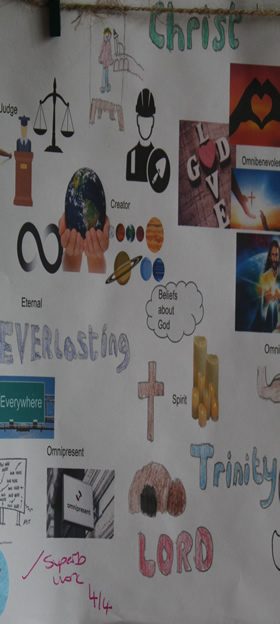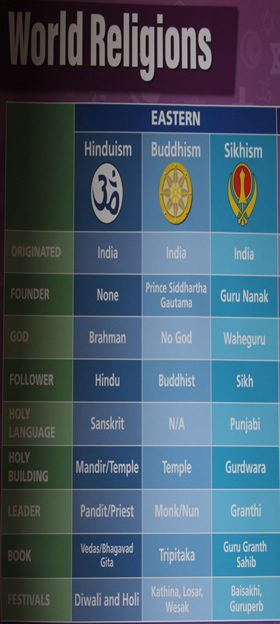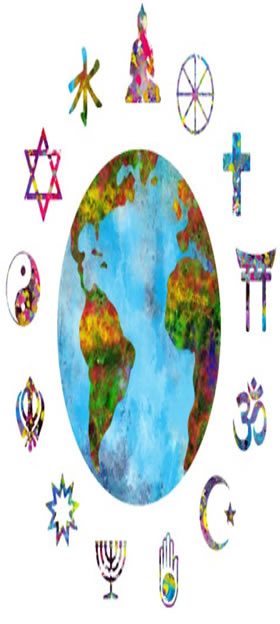RE is about not just learning about religions, but learning from religions. It helps people to understand and respect people’s opinions.

Miss C. Jefimik
Head Of Religious Education
Subject Overview
Religious education is currently taught from KS3-KS5. KS3 students are taught Religious Education from YR 7-9 twice a fortnight. During this time we work through a riveting scheme of work that covers topics such as; death and the afterlife, important Bible stories, religion and war, race and discrimination, and the villains of religion. In KS4, students have the option of taking GCSE, where they will have 6 lessons a fortnight to learn in detail about Christianity and Judaism. If students choose to not take RE as an option they will have an ethics lesson once a fortnight. This is where students learn about ethical issues like abortion, euthanasia, capital punishment, and gene technology. It is an opportunity for students to develop their opinions of these ethical issues in a safe environment.
In KS5, students have the opportunity to take A-Level Religious Studies. In this course, they will read a broad range of scholars and different sources of authority. They will have the opportunity to discuss ethical issues at an advanced level, learn about biblical scripture and the beginnings of the church.
The course is broken up into three topics: Philosophy, Ethics, and religious thought. The word philosophy means ‘love of wisdom. In philosophy, we question and think about the answers, then perhaps look for clarification, explanation, and justification, just as we do when we are talking to people, so we understand more clearly. Being good at philosophy is not a question of how much you know, because anyone can, with enough hard work, learn facts. Philosophy requires engagement. It requires you to think about the issues, reaching your own conclusions. Ethics is about how people behave and where their morals lie. Within ethics, we discuss issues like are we really free to make decisions? Developments in religious thought provides an opportunity to study one religious tradition and explore their religious beliefs, values, teachings, practices, and responses to challenges and issues within contemporary society. For example, Christian views on gender and the rise of secularism.
Why study RE?
RE is an important subject for everybody, not just because of its significance in current world affairs, but because it allows students to develop into conscientious adults. RE is strongly linked to many other fields such as Music, Art, History, Politics, Social and Cultural issues, Global Economics, and much more. No sphere of life is untouched by issues of religion and belief, so how can any of us begin to understand humanity without understanding at least a little about the subject? Matters of religion and belief have, directly or indirectly, affected all our lives and will continue to do so.
What do students get out of RE?
- It is relevant for all children, whatever their religion or beliefs
- It teaches an understanding of the world religions and beliefs
- It shows how religion influences individuals, families, communities, and cultures
- It explores the political and social impact of religion and different beliefs
- It encourages reflection on issues of justice and truth
- It allows students to reflect and form opinions of their own
- It prepares students for adult life and allows students to develop skills such as debate and self-reflection.
- It promotes respect for others and respect for oneself
- It tackles extremism and religious discrimination.
- It enhances students understanding of global affairs
- It is an opportunity for students to develop their own opinions and beliefs in a safe environment
Staff
Miss C. Jefimik
Ms B Capewell
Mrs K. Webster




